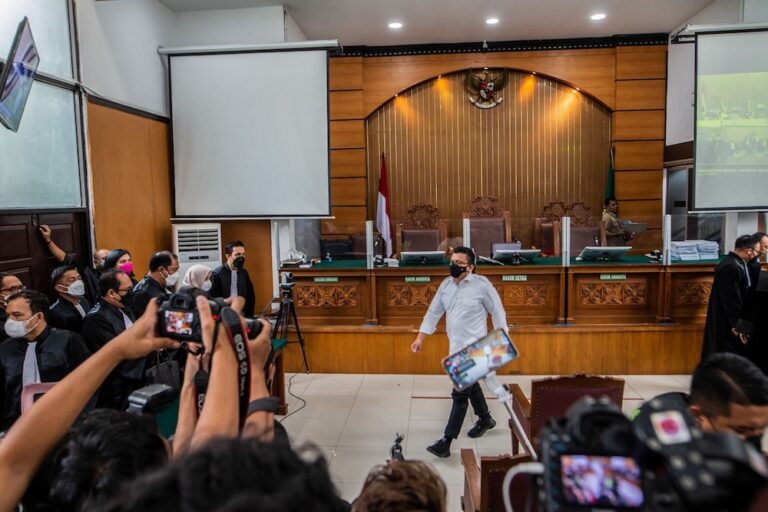After Papuan Peoples' Congress members read a declaration of independence from Indonesia, security forces shut down the gathering, beating and arresting protesters.
(Human Rights Watch/IFEX) – New York, October 19, 2011 – Indonesian security forces on October 19, 2011, arrested approximately 300 protesters after shutting down a gathering of the Papuan Peoples’ Congress in Jayapura, the capital of West Papua province. Those detained include: Forkorus Yoboisembut, the chairman of the Papuan Customary Council; Selphius Bobii, a social media activist and organizer of the congress; and Edison Waromi, the president of the West Papua National Authority, as well as his wife and child.
Human Rights Watch urged the authorities to treat all detainees humanely and ensure respect for their due process rights, including access to legal representation.
Shortly after members of the Papuan Peoples’ Congress read a declaration of independence from Indonesia, military personnel broke up the demonstration by shooting warning shots into the air. According to local media sources, a melee ensued in which security forces pistol-whipped or beat protesters with rattan canes and batons, resulting in several injuries.
“Security forces shouldn’t use unnecessary force in quelling a peaceful demonstration,” said Elaine Pearson, deputy Asia director at Human Rights Watch. “Police should make sure all those detained are treated properly and have access to lawyers.”
Human Rights Watch has previously documented torture and ill-treatment of political detainees by police and prison guards in Papua, and the failure of the government to hold those responsible to account.
Human Rights Watch said Indonesian security forces should abide by the United Nations Basic Principles on the Use of Force and Firearms, which call upon law enforcement officials, including members of the armed forces, to apply nonviolent means before resorting to the use of force and only in proportion to the seriousness of the offense.
In Papua, documenting human rights violations during protests and other events is made even more difficult because of restrictions on access for foreign human rights monitors and journalists. Human Rights Watch called on the Indonesian government to lift these restrictions. Human Rights Watch takes no position on the self-determination of the Papuan people.


